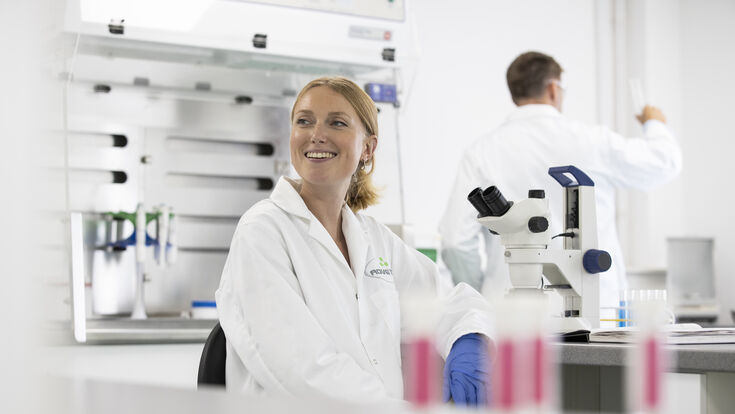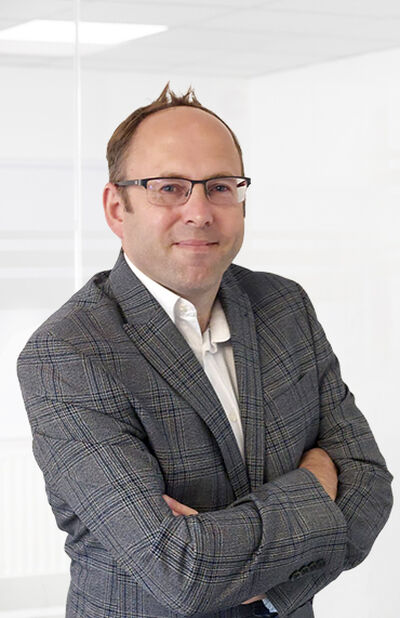Business Talk : "We haven't really pushed the boundaries in treating mixed residual waste"

In the UK about 50% of the waste is recycled, the remaining 50% end up in landfills or waste-to-energy plants. Why is that so and what needs to be done to improve the recycling rates?
This happens because waste streams may include materials for which there are no recycling outlets – perhaps they are too new, or they can't be separated out – or there is organic matter contained within the waste. This means this mixed residual waste is therefore headed down one of two routes – landfill or energy from waste.
In terms of improving recycling rates – at the front end, products must be designed with materials that can be easily separated and recycled. As consumers, we must look to buy products that have the ability to be recycled and dispose of our waste correctly. As a waste industry, we need improved recycling infrastructure. Until there is a complete shift in human behaviour though, we will be left with residual waste that needs to go somewhere.
Would you say there is a global waste problem?
Yes. We live in a society where there are nations with developed infrastructure for waste management and waste treatment and then parts of the world that have very little infrastructure – yet we’re exporting our materials to these countries.
You only have to go and walk around underdeveloped nations to see the environmental damage that some of these materials cause. We are all still using the same basic materials and once they're in the environment, they move about – as we've seen with plastics in the ocean – which means that we're all equally impacted to some degree. In Europe, we are pushing the circular economy and trying to look at the whole supply chain to gain better value, but we are only one small part of the system. Changes need to be made on a global scale if they’re going to have a real, beneficial impact on the whole planet.

Is there enough public awareness of the “side effects” of (not properly handled) waste, such as pollution, water scarcity, health problems…?
It comes in fits and starts. David Attenborough, for example, will release a documentary that presents a very strong, powerful message and resonates across a wide proportion of the population – but it's only a spotlight.
In general, we're aware of the global impact of climate change and the role waste plays in that but I don't think we’re aware of our direct impact on a personal or household level.
Pollution and water scarcity are very serious but sometimes these issues can feel ‘too big’ for people to grasp. We need to get communities thinking more locally about the impact of their waste – such as what this means for road safety if there’s lots of HGVs collecting waste and how this impacts air quality, for example.
Education is required as well as a consistent message from bodies like WRAP and local authorities with clear actions on how to behave and the consequences of not recycling.
Now, we’re considering how to make mixed residual waste more stable and succeeding in using biotechnology to treat the organic fraction and generate other chemicals from the plastic fraction.Stephen Wise, Advetec
Which technologies can advance and improve waste handling?
For food waste, using technologies such as anaerobic digestion is beneficial as this creates a biogas which can be turned into gas for heating, electricity or carbon dioxide. Where it gets more challenging is around mixed residual waste and until recently, we haven't really pushed the boundaries here. Now, we’re considering how to make this waste more stable and succeeding in using biotechnology to treat the organic fraction and generate other chemicals from the plastic fraction.
The most exciting are those technologies – such as Advetec’s – that seek to create greater value out of the waste we generate. By treating waste, we are able to create a material that has an inherently higher value and can go into further processing to create substitute fuels, for example.
In the UK the Treasury plans to end the use of low taxed red diesel for the waste management sector. Critics fear this will not push the transition to more sustainable fuel sources but only add to costs. What do you think?
It's happened very quickly and in the short term, there will be waste collectors and handlers pushing that cost straight back down onto the customer. The margins are fairly narrow in some of these sectors, so where else is it going to go?
That said, this will create an incentive to be greener – we’ve already seen fleets of electric vehicles or hydrogen powered vehicles for waste collection and long-distance lorries changing to use bio fuels. Also, with the advent of clean air zones in cities, there is increasing pressure to adapt. This will help accelerate that move, though it might have been better to have a planned transition rather than jumping straight from A to D!
And not just that, operators cannot solely focus on updating vehicles and fuels but must also rethink how they treat and process mixed residual waste – particularly given the fact the recent announcement that the government aims to halve it by 2042. Now’s the time to explore how green technology can help them plug this financial gap. Through improving practices, they can enhance their customers’ ESG strategies, which can lead to more favourable terms in contracts and help fix costs.
It’s also said that the solution to the waste problem lies upstream of the bin. How do we push improved product design and improve business accountability?
It requires businesses to think more carefully about the implications of their design decisions– that means considering the materials used, the product’s functionality, how its packaged and its use after the end of life - and the environmental impact of each stage. Too often products are designed to look good at great cost to the environment. Also, the price on materials such as oil-based plastic needs to be a lot higher. There needs to be a tax on them to encourage manufacturers and designers to look for alternative materials that could be more sustainable.
Upstream of the bin there are of course also the consumers. We still live in a throw-away society. How can that change?
Changing human behaviour is extremely difficult and it's not going to change for a number of years. It all starts with education – in schools, from local authorities, among businesses. We have to bear in mind that we are a small part of the global population – we're all at different stages. Therefore, we must make it as easy as possible to do better – from initial design, to businesses taking more accountability, to improved recycling systems. Only when all work in harmony will we see real change.
About Stephen Wise
Dr Stephen Wise is the Chief Strategic Development Officer for biotechnology business Advetec. Stephen has more than 20 years’ experience in the waste, renewables and environment sector and his expertise spans operations, technical and engineering services across all waste treatments technologies, policies and regulations.
Stephen is a board member of the Industrial Biotechnology and Innovation Centre (IBioIC), the Composting and Anaerobic Digestion Association of Ireland (Cre), and industrial advisor to Cranfield University, an active member of Chartered Institution of Wastes Management and the Irish Waste Management Association and a member of various expert panels for the sector. He has run multi-million-pound activities for many market-leading companies including Suez, Renewi, Cementir, Ricardo, Wood Group, and Energia.

